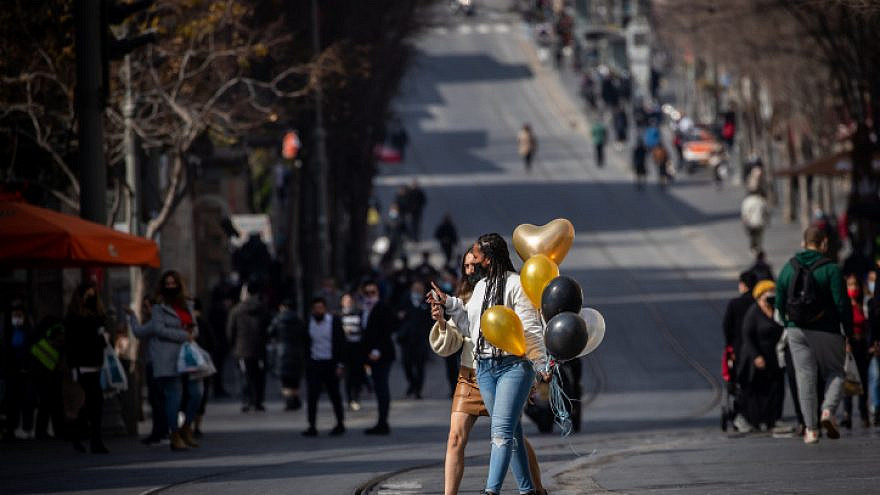Israel on Sunday began a gradual easing of its COVID-19 lockdown following a Cabinet approval of the measure early Friday morning.
Israelis are now allowed to travel more than one kilometer (1,094 yards) from their homes, and nature reserves, national parks and outdoor heritage sites have reopened. Restrictions were also lifted on workplaces that do not receive the public (as long they follow Health Ministry standards), and one-on-one services, like barber shops, may reopen. Restaurants can now offer takeaway services, and bed and breakfasts can host single families.
The lockdown, Israel’s third since March, is being lifted despite the fact that it has had less of an impact on the virus’ morbidity rate than hoped, which both Israeli Health Minister Yuli Edelstein and Prime Minister Benjamin Netanyahu have attributed to the spread of the so-called U.K. variant of the virus.
At Thursday’s Cabinet meeting, which ran on into Friday, Netanyahu said, “The British mutation is … running amok in Israel. We can see it in the simple fact that around 80 percent of morbidity in Israel today is from the British mutation. This changes the situation.”
“We are the only country that is dealing with the British mutation with a certain success, due to the millions of vaccines that we have here,” said Netanyahu.
While Israel has begun vaccinating all citizens over the age of 16, Netanyahu reiterated that it was the over-50 age group that was key.
Ninety-seven percent of the COVID-19 deaths in Israel have been in this demographic, he noted, as well as 92 percent of all serious cases. Because of this, he said, Israel’s push to vaccinate its older population has resulted in the fact that in the past 16 days there has been a 26 percent decrease in hospitalization among those over 60, as well as a 45 percent decrease in verified cases in the same population.
According to Israeli Health Ministry data, 77.3 percent of Israelis in the 60-69 age group have received the first dose of vaccine, with 66.8 percent having received the second dose. In the 50-59 age group the figures are 68.5 percent and 43.4 percent; for 70-79 93.9 percent and 85 percent; for the 80-89 group 87 percent and 77.9 percent; and for the 90-plus group 90 percent and 79 percent.
“The vaccines work. The more people who are vaccinated, with emphasis on the 50-plus age group, the more we will be able to gradually, cautiously and responsibly open the economy,” he said.
To date, 3,426,415 people in Israel have received the first dose of the Pfizer BioNTech COVID-19 vaccine (representing 37.18 percent of the population) and 2,015,108 have received both doses (or 21.87 percent of the population), according to the Health Ministry.

























